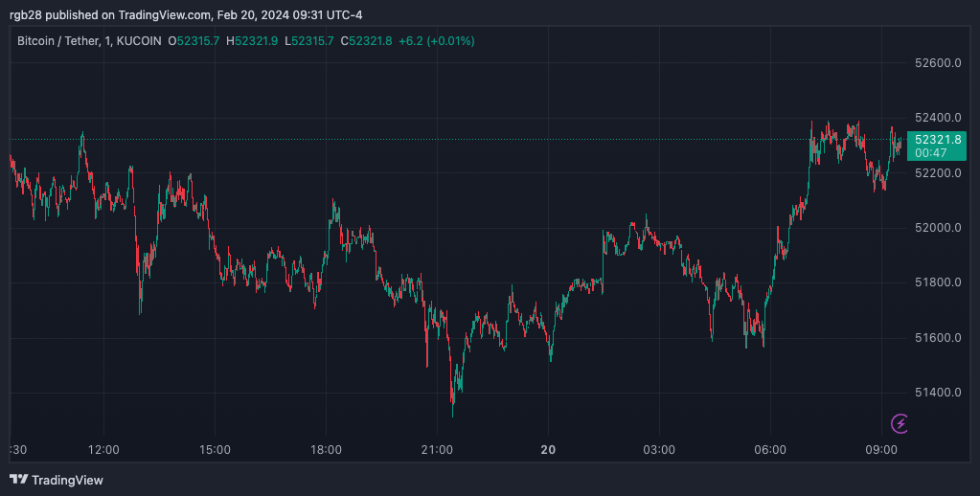- February 21, 2024
- Posted by: admin
- Category: BitCoin, Blockchain, Cryptocurrency, Investments
Over the years, more and more people have adopted cryptocurrencies like Bitcoin as their vehicle for financial freedom and savings safeguard. The largest cryptocurrency by market capitalization is usually preferred by those who want to protect their money against political and economic turmoil.
Despite this, not all individuals facing economic hardship can dive face-first into the flagship cryptocurrency or any other digital asset with volatility risk. A recent post by former NFL player and Bitcoin advocate Russell Okung ignited a discussion over Bitcoin and stablecoins adoption in Africa.
Stablecoins Preferred Over Bitcoin In Struggling Economies
Professional athlete Russel Okung sparked a debate on X (formerly known as Twitter) after sharing his experience of advocating for the Lighting Network in Africa. Okung, known for his Bitcoin advocacy through the years, explained that the experience made him face a “cold, hard realization” about his perspectives on cryptocurrency adoption in Africa.
In the post, the former NFL player explained that he found out people were more interested in dealing with USDT before Bitcoin despite his efforts to advocate for the flagship cryptocurrency:
They desired USD, even if they were synthetic versions.
Members of the crypto community shared their thoughts on the matter. Many users, including Bitcoin podcaster Peter McCormack, highlighted similar experiences in Africa and countries like Argentina and Lebanon.
I’ve had the exact same experience in Argentina, Africa and Lebanon this year. People want dollars.
— Peter McUnsignedInteger
(@PeterMcCormack) February 18, 2024
Individuals in countries with underdeveloped or struggling economies gravitate toward more “stable assets,” as many pointed out in the replies. Undoubtedly, exposure to a currency like USD through stablecoins appears to be a better and more secure option for many than their devaluated national currency.
A recent report from the Mexican crypto exchange Bitso revealed data that suggest stablecoin adoption is preferred over Bitcoin in countries like Argentina and Colombia.
The exchange’s data analysis shows that both Latin American countries have high crypto adoption. However, due to their struggling economies, most users in the platform revolve around stablecoins like USDT and USDC instead of Bitcoin.
In the discussion, another X user pointed out that these struggling economies don’t give crypto enthusiasts the “luxury” of considering the long-term benefits of holding Bitcoin as a “store of value” as their short-term necessities overpower any future compensations they could receive.
Stablecoins: A Stepping Stone For Crypto Enthusiast
Austin Campbell, Founder & Managing Partner of Zero Knowledge Consulting, took Okung’s post to share his view. Campbell noticed the same adoption pattern as Okung during his time at Paxos, observing people’s preference for USD stablecoins as the digital asset to hold their money.
However, the stablecoin philosopher doesn’t consider this behavior to come from ignorance. Instead, he deems that it aligns with understanding Bitcoin as a store of value rather than an everyday-transaction cryptocurrency.
Campbell drew a comparison between gold and Bitcoin to explain his view further. In his comparison, he emphasized how people don’t pay for everyday items, like sandwiches, with gold. Instead, they store an asset like gold and partially sell it off occasionally for “more liquid fiat currency, with which we buy sandwiches.”
According to the professor, cryptocurrencies won’t be any different in the long run, as no single form of money is “good for both liquid and deep transactions at all times and a good store of value.”
However, Campbell considers that choosing to leave local financial systems, even though USD stablecoins, “is still a significant upgrade compared to most local systems in many countries.”
Lastly, angel investor Stephen Cole also expressed a similar view. Cole shared his acceptance of USD stablecoins as an “important part of the journey” toward Bitcoin ultimately replacing fiat money. The investor considers stablecoins a “lifeline for many facing hyperinflation who aren’t in a position to think about long-term saving.”
